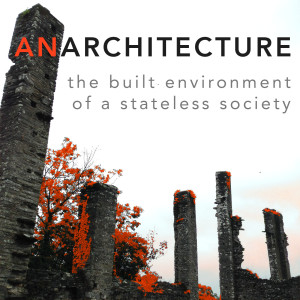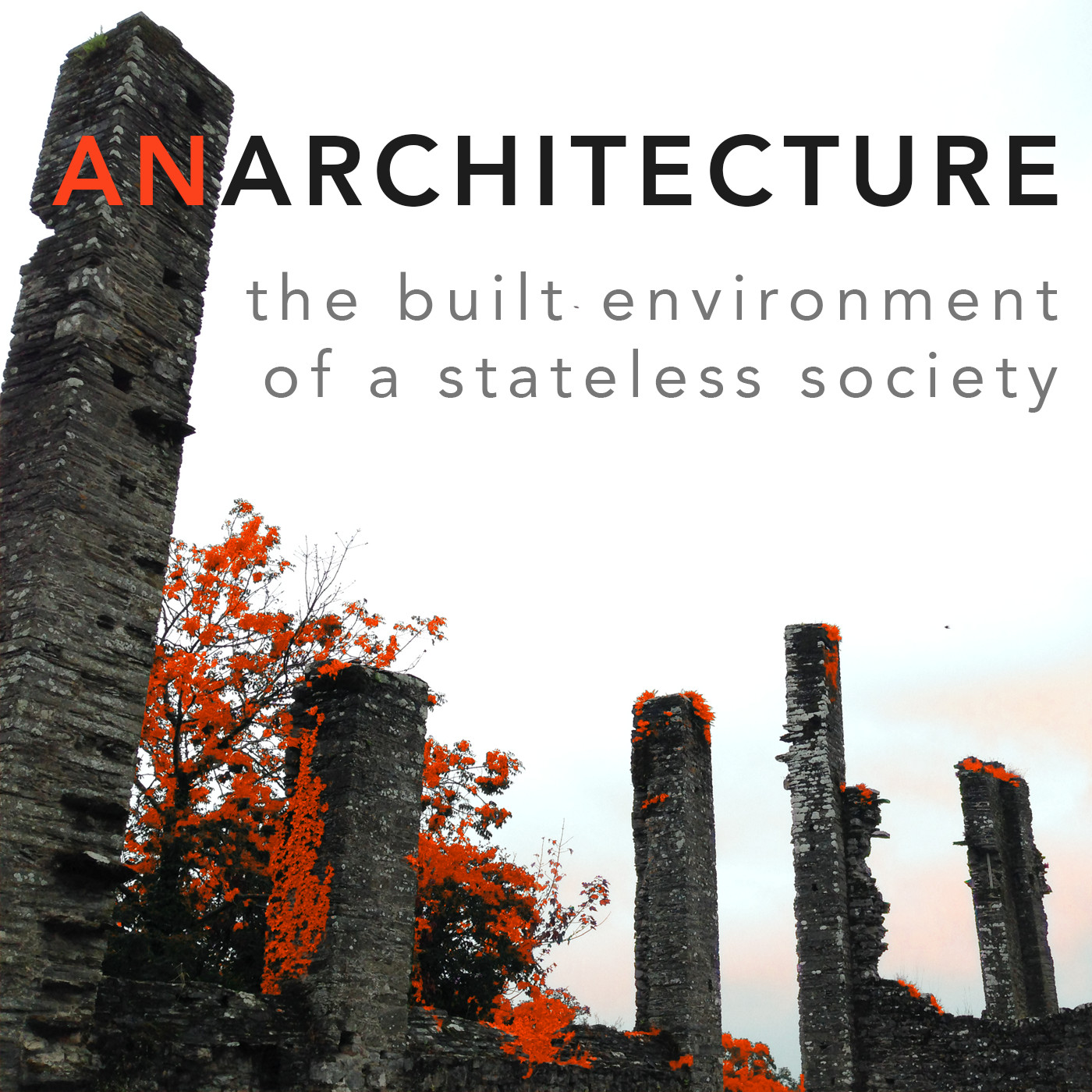Episodes

Thursday Jul 18, 2019
ana025: Free Private Cities | Titus Gebel Interview
Thursday Jul 18, 2019
Thursday Jul 18, 2019
We interview Titus Gebel, the Founder, President and CEO of Free Private Cities Inc.
Free Private Cities is working towards building new, greenfield cities using a model of individual bilateral contracts between each citizen and the city owner/operator.
In his book, "Free Private Cities: Making Governments Compete for You," Titus describes why and how Free Private Cities should be developed.
Use hashtag #ana025 to reference this episode in a tweet, post, or comment
View full show notes at http://anarchitecturepodcast.com/ana025.
Intro
- The Free Private Cities Concept
- Individual contracts
- A simple idea, with profound consequences
- Autonomy from the host nation
- Real World prototypes: Hong Kong, Shenzhen, Singapore
- Unique forms of urban development
- Patrik Schumacher - Market Based Urban Order
- Open to market experimentation
- Competing service provider models
- Incentives to cover maintenance costs
- Book: Free Private Cities: Making Governments Compete for You by Titus Gebel
Discussion
- What is a Free Private City (FPC)?
- A concept to make governments compete for you
- Rights and obligations of citizen and service provider are captured in an individual contract
- A contract should not be changed by only one party
- The Monaco realization - good governance makes political action unnecessary
- Location location location!
- Is a weak or friendly sponsor government a geographical feature?
- Location factors -
- climate
- proximity to infrastructure
- access to trade
- technology can improve desirability of remote locations and seasteads
- How does the process get started?
- Spread the idea
- Proposals from candidate countries
- Legal autonomy is the hardest part
- The sales pitch - Special Economic Zones
- Seeking finance: $100m opens a lot of doors
- At some point, they will hopefully compete for us
- Examples - Hong Kong, Shenzhen, Macao
- More than 4,000 Special Economic Zones (SEZ's) and Special Administrative Regions (SAR's) already exist
- SEZ's create wealth for the surrounding regions
- How do you integrate existing occupants?
- Concept is based on 100% voluntary participation
- Ideal is to start on uninhabited territory
- Existing occupants
- Referendum to join city
- Offer free/discounted citizenship
- Compensation for displacement
- How does property ownership work?
- Everything is conceivable
- City operator is a for-profit entity
- Operator would likely own the land, sell parcels to raise funds
- Option agreements or partnerships with existing landowners
- Lease model - less likely but also possible
- User fees alone may not be sufficient
- Push vs. Pull development
- Start small, organic growth
- Some master planning is needed for easements, etc.
- Patrik Schumacher - zoning for aesthetics in city center
- "The Freak Zone" in outer areas - little or no zoning
- Lighter touch, use based zoning
- Height and noise restrictions alone can determine uses
- Opportunities for more unique urban forms
- Disneyland as a SEZ
- Patrik Schumacher - Market Based Urban Order
- We don't know, so we want to try it out
- Different districts with different rules
- How do you manage change?
- Noise threshold and other development rights can be sold
- Multiple competing operators / providers within one city?
- This is possible for certain services
- Provision of security should be a monopoly
- Transaction costs too high
- "I'm happy if people can prove me wrong"
- Competing security within subdevelopments, with subsidiarity to the operator
- San Francisco private police force
- City operator as an intermediary
- "Social contract" is a contract between each individual and every other individual
- People think they own city assets because they pay taxes
- The FPC contract model clarifies the relationship
- In a FPC, other citizens can't interfere with your contract with the operator
- Much better protection for individual liberties
- Representative systems are susceptible to lobbying, cronyism, power plays
- Taxes don't entitle you to any services
- FPC operator is liable for malperformance of contract - compensation for poor security performance
- Joe's house was broken into
- Only role of the police was an official report for the insurance claim
- Monaco car vandalism - direct access to the minister
- More cameras, and more screening of immigrants
- "If you are not punishing people for doing bad things, they will do it again"
- Cameras and police presence in an FPC - not as creepy as when a government does it - is it a surveillance state if there is no state?
- There are always trade offs
- If you are not providing effective security, you will go out of business
- People come to Monaco because the cameras are there, keeping them safe
- A cruise ship captain can legally abuse his passengers - but he treats them like customers
- How would disputes between a citizen and the operator be adjudicated?
- Third party arbitration, special courts
- No different than any major construction contract
- Minimum payment to arbitrators is $1,200 - not feasible for small claims
- Small claims tribunals a potential solution
- Easier in theory than in practice
- Other means of citizen involvement in city management
- It's not so important who owns the city operator, as long as the contracts are enforced
- Some cities might require citizens to purchase a share of ownership
- Cooperatives are possible
- Various councils can be formed, but cannot violate citizen contracts or force changes to the contract
- Public space is one service offered by the operator
- Kicking someone out of a city means preventing them from using public space.
- Cities who expel criminals from public and private spaces will end up looking less like a police state
- Restitution to victims
- Operator makes citizen whole, criminal owes the operator compensation
- Keep punishment/imprisonment to a minimum, prefer expulsion and compensation to victims
- Multiple laboratories to see what really works
- Projects on the horizon
- Subscribe to FPC newsletter for updates
- Buy the book (link below)
Links/Resources
- Free Private Cities Website
- Patrik Schumacher
Episodes Mentioned
Contact:
Email us: info@anarchitecturepodcast.com
Tweet us: @anarchitecturep
Follow:
Website: http://www.anarchitecturepodcast.com/
Facebook: https://www.facebook.com/anarchitecturepodcast/
Instagram: https://www.instagram.com/anarchitecturep/
Twitter: https://twitter.com/anarchitecturep/
Reddit: https://www.reddit.com/user/AnarchitecturePodcst
Minds: https://www.minds.com/AnarchitecturePodcast
Subscribe:
iTunes: https://itunes.apple.com/au/podcast/anarchitecture/id1091252412
YouTube: http://www.youtube.com/channel/UCWELM_zTl7tXLgT-rDKpSvg
Spotify: https://open.spotify.com/show/5pepyQfA25PBz6bzKzlynf?si=4UiD6cLkR6Wd26wJC4S4YQ
Podbean: https://anarchitecture.podbean.com/
Stitcher: http://www.stitcher.com/s?fid=85082&refid=stpr
Bitchute: https://www.bitchute.com/channel/MIq2dOnSaTOP/
RSS (all posts): http://www.anarchitecturepodcast.com/feed/
RSS (Podcasts only): http://www.anarchitecturepodcast.com/feed/podcast/
Other Subscription Options
Support:
Patreon: https://www.patreon.com/anarchitecturepodcast
Bitbacker.io: https://bitbacker.io/user/anarchitecture/
Steemit: https://steemit.com/@anarchitecture
Donate Bitcoin (BTC): 32cPbM7j5rxRu1KUaXGtoxsqFQNWD696p7


No comments yet. Be the first to say something!